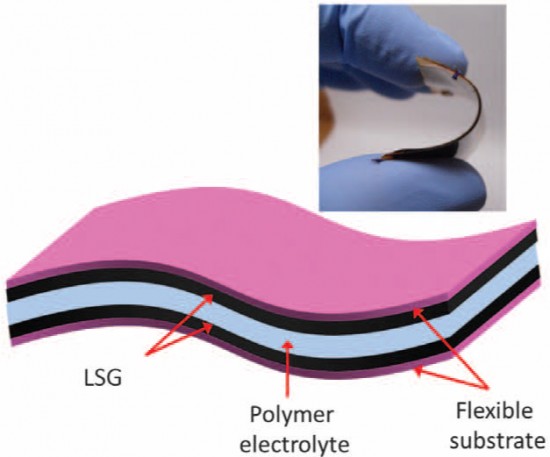The battery of the future?

One of the primary things that has held back the progression of technology throughout time is the lack of availability when it comes to small, lightweight and efficient power sources. It is, in fact, one of the main problems of our current time. Traditional batteries are simply too inefficient with regards to what we need to be able to do. Now, it looks like some new developments in battery technology may revolutionize the next wave of improvements.
Researchers at UCLA found a way to put together a battery made from a carbon-based element called Graphene that is not only efficient, but can be done with an incredibly simple process. This new battery design is also non-toxic, flexible and completely biodegradable. From the outsider’s point of view, this seems to be a miracle and if the researchers can perfect their design, it may indeed turn out to be one.
The quest for working supercapacitors has been a long struggle, as it’s been a task to get them to hold enough energy to be useful. This research may overcome that hurdle since the Graphene battery, when developed properly, could have an energy density that puts the chemical batteries we use now to shame. Small, effective and quick to charge. The researchers estimate that when properly applied, we’ll be able to charge something like a cell phone in seconds and electric cars within a minute.
But one of the most amazing things about it is its versatility. The battery structure is flexible, meaning it can be used in any number of applications, from TVs to micro-electronics to advanced prosthetics. It also means that it can be used to alter the architecture of items already in existence, making them smaller or flexible as needed. Ever wanted to roll up your big screen television and take it with you to a friend’s house? That might be possible in the future. If you want to get a more complete look at the specs and the related science check out this article at phys.org.
The potential for a development like this is seemingly limitless. With our current forays into space, the possibility of easily rechargeable, lightweight energy storage could speed our progress by leaps and bounds. The researchers’ next step, in addition to perfecting these new batteries, is to find someone willing to help manufacture them en masse, so we may see this future tech sooner than we imagine.
Supercapacitor diagram courtesy of geekosystem.com

1 comments